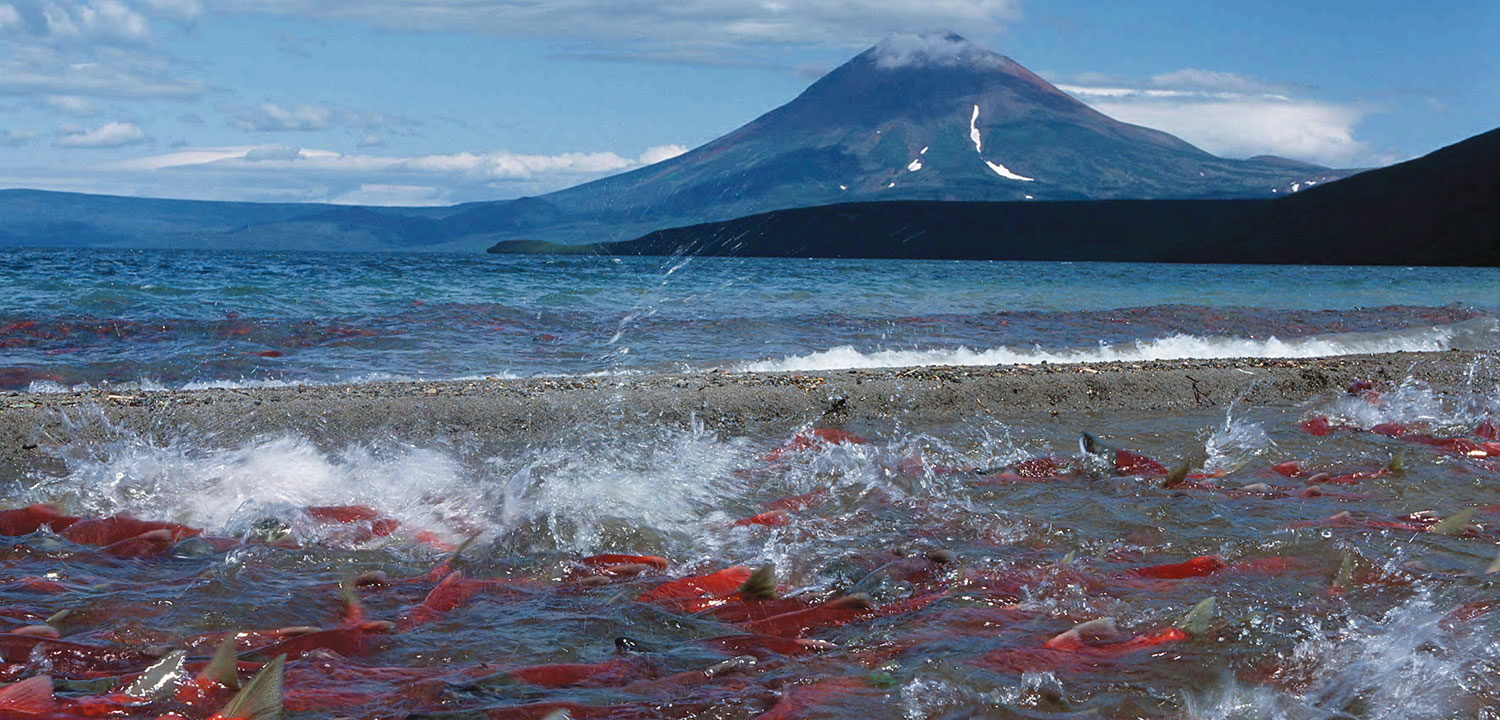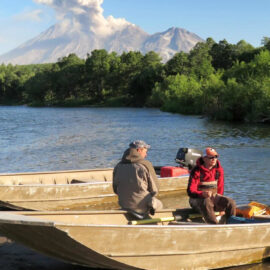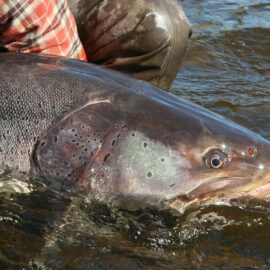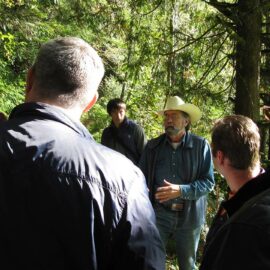Thirty years of partnership across the North Pacific.
Wild Salmon Center is the only international organization leading the protection of wild salmon strongholds — the best remaining wild salmon rivers — across the entire North Pacific. And beginning in 1992 with the founding of the organization, our mission took us to the Russian Far East. This region is one of the most important centers of wild salmon abundance left on Earth. Forty percent of the remaining wild salmon on the planet originate in Russia.
For 30 years, we have proudly worked side by side with Russian scientists, citizens, and government officials to improve the health of wild salmon rivers and wild fish.
Together, we secured major accomplishments in the Russian Far East in scientific research, reducing illegal fishing, improving commercial fisheries management, watershed protection, and environmental education:
- 6.4 million acres of prime salmon habitat protected in parks and other reserves, including the first-ever national salmon park, on the Kol River in Kamchatka
- 40 rivers managed for wild fish populations
- Over 50 exchanges connecting international scientists, fishermen, educators and conservationists
- 70 percent of Kamchatka’s fisheries by volume certified by Marine Stewardship Council or in certification, meaning fishermen are harvesting responsibly and actively reducing illegal fishing on their home rivers
- Dozens of seminal scientific papers published from research on unique populations of steelhead and taimen in the Russian Far East
- Training and promotion of guides and outfitters catering to international anglers across the Russian Far East
- Development of salmon curriculum used in outdoor education and teacher trainings throughout the region
Suspending Our Work in Russia
In July 2023, we entered a new era in Russia when WSC was branded “undesirable” by the Russian Federation’s Prosecutor General’s Office. It follows a trend in which many other Western organizations have also been designated undesirable, including World Wildlife Fund and Greenpeace. These seem to be retaliatory against Western involvement in the Ukraine: all of the designations are built on dubious charges.
Unfortunately, this designation has legal force. It makes it illegal and potentially dangerous for our longtime friends and partners working on the ground in Russia to have any contact with WSC staff. Thus, for the first time in 30 years, we are suspending direct contact with Russian colleagues.
The need for salmon conservation hasn’t gone away. The Russian Far East is still an important hub for wild salmon. On the foundation of knowledge and staff capacity we build together, local conservationists continue to work as much as they can – conducting anti-poaching raids, advancing education efforts, and pushing forward habitat protections.
Our relationships are durable, despite increasing isolation in Russia. We’ll never forget our friends around the North Pacific and their quest for clean water, healthy fisheries, and wild places to call home. And we look forward to getting back to work one day in the Russia Far East.




